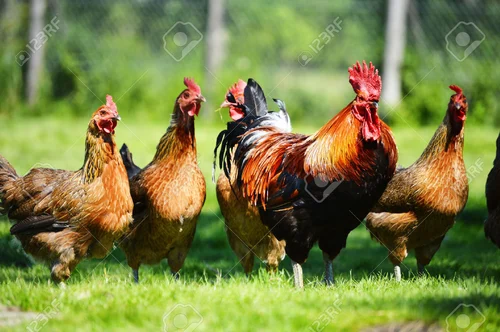Benefits of Desi Chicken: Why This Native Breed is a Game-Changer
Desi chicken, often called native or country chicken, is a staple in South Asian cuisine, cherished for its rich flavor and cultural roots. Unlike commercial broiler chickens, desi chickens roam freely, foraging naturally, which enhances their nutritional value and taste. As health-conscious consumers and sustainable food enthusiasts turn to organic options, the benefits of desi chicken are gaining attention. This blog post dives into why desi chicken is a superior choice, offering unmatched health benefits, environmental sustainability, and economic advantages for farmers. From its nutrient-dense meat to its role in eco-friendly farming, desi chicken stands out as a wholesome alternative to mass-produced poultry. Whether you’re a foodie seeking authentic flavors or someone prioritizing wellness, desi chicken delivers. Join us as we explore its nutritional superiority, culinary versatility, health perks, and more, while highlighting why it’s a smart choice for conscious eaters. Ready to discover why desi chicken is a game-changer? Let’s dig in and see how this native breed can elevate your plate and support sustainable living.

2. Better Taste and Culinary Versatility
Desi chicken’s distinct flavor sets it apart from commercial poultry, making it a favorite among chefs and home cooks. Its rich, robust taste comes from a natural diet and free-range lifestyle, allowing the meat to develop a deeper, more authentic flavor. Unlike the often bland broiler chicken, desi chicken has a firm texture and savory profile, perfect for traditional dishes like desi chicken curry, tandoori, or biryani. Its versatility shines in both rustic and gourmet recipes, from spicy South Asian gravies to grilled preparations. The slower growth rate of desi chickens results in tender yet chewy meat, enhancing the eating experience. This makes it ideal for slow-cooked dishes that absorb spices and herbs, delivering mouthwatering results. Desi chicken eggs, known for their vibrant yolks, are equally prized for baking and breakfast recipes. Food enthusiasts appreciate its ability to elevate simple meals into memorable culinary experiences. Whether you’re hosting a dinner party or cooking a family meal, desi chicken’s unique taste and adaptability make it a standout choice, bringing authenticity and flavor to every dish you create.
3. Health Benefits of Desi Chicken
Eating desi chicken offers numerous health benefits, making it a smart choice for wellness-focused individuals. Its lean meat contains lower cholesterol and healthier fats than broiler chicken, reducing the risk of heart disease. Rich in high-quality protein, desi chicken supports muscle growth, tissue repair, and weight management, making it ideal for fitness enthusiasts. The absence of antibiotics and growth hormones, commonly used in commercial poultry, ensures a cleaner, safer protein source. Desi chicken’s natural diet boosts its micronutrient content, including iron for oxygen transport, zinc for immunity, and B vitamins for energy metabolism. These nutrients help combat fatigue, enhance immune response, and promote overall vitality. The omega-3 fatty acids in desi chicken, derived from its foraging diet, support brain health and reduce inflammation. For those managing chronic conditions like diabetes or obesity, desi chicken’s low-fat profile aids in maintaining stable blood sugar and healthy weight. By choosing desi chicken, you’re investing in a nutrient-rich food that aligns with a balanced, health-conscious lifestyle, free from the harmful additives often found in mass-produced poultry.

4. Environmental and Sustainability Benefits
Desi chicken farming is a beacon of sustainability in modern agriculture. Unlike commercial poultry operations, which rely on resource-intensive feed and confined spaces, desi chickens thrive in free-range environments, requiring minimal inputs. They consume natural diets like grains, insects, and kitchen scraps, reducing the need for processed feed and lowering the carbon footprint. Their hardiness and disease resistance minimize the use of antibiotics, promoting healthier ecosystems. Free-range desi chicken farming supports biodiversity by allowing natural foraging, which helps maintain soil health and reduces pesticide use. This eco-friendly approach aligns with sustainable agriculture, preserving resources like water and land. Additionally, desi chicken farming empowers small-scale farmers, fostering rural resilience and reducing dependence on industrial systems. By choosing desi chicken, consumers support practices that mitigate climate change and promote environmental balance. The low-impact rearing process ensures that desi chicken is not just a meal but a step toward a greener future, making it an ethical choice for those committed to sustainable living and preserving the planet for future generations.
5. Economic Advantages for Farmers
Desi chicken farming offers significant economic benefits, particularly for small-scale and rural farmers. These native breeds are naturally hardy, requiring less investment in feed, housing, and medical care compared to commercial broilers. Their ability to thrive in diverse climates and resist diseases reduces veterinary costs, making them a cost-effective choice. Desi chickens can be raised in backyards or small farms, lowering infrastructure expenses and enabling farmers to start with minimal capital. The growing consumer demand for organic and free-range poultry has created a lucrative market for desi chicken, allowing farmers to command premium prices. This trend supports local economies, as desi chicken is often sold directly to consumers or through local markets, cutting out middlemen. Additionally, desi chicken farming provides a sustainable income source for rural households, empowering women and marginalized communities who often manage poultry. By investing in desi chicken, farmers tap into a resilient, low-risk venture that aligns with the rising popularity of ethical and organic food, ensuring long-term financial stability and community growth.
6. Desi Chicken vs. Broiler Chicken
When comparing desi chicken to broiler chicken, the differences are stark. Desi chickens, raised in free-range settings, grow slowly, developing leaner meat with richer flavor due to their natural diet of grains and insects. Broilers, bred for rapid growth in confined spaces, often rely on processed feed, antibiotics, and growth hormones, resulting in higher fat content and less robust taste. Nutritionally, desi chicken offers lower cholesterol, higher protein, and more micronutrients like iron and zinc, making it a healthier choice. Environmentally, desi chicken farming is sustainable, using fewer resources and supporting biodiversity, while broiler production is resource-intensive and contributes to pollution. Health-wise, desi chicken’s lack of chemical additives reduces risks associated with antibiotic resistance. Taste-wise, desi chicken’s firm texture and authentic flavor outshine the often bland broiler meat. For consumers, choosing desi chicken means supporting ethical farming and enjoying superior quality. While broilers may be cheaper, desi chicken’s health, environmental, and culinary benefits make it the smarter choice for conscious eaters seeking quality and sustainability.
Conclusion
Desi chicken is more than just poultry—it’s a healthier, tastier, and eco-friendly choice that benefits consumers, farmers, and the planet. Its nutritional superiority, rich flavor, and health perks make it a standout protein source, while its sustainable farming practices support environmental balance. Economically, desi chicken empowers small-scale farmers, fostering local economies and meeting the growing demand for organic food. Compared to broiler chicken, desi chicken offers unmatched quality, free from harmful additives and packed with nutrients. By choosing desi chicken, you’re investing in your health, supporting ethical agriculture, and savoring authentic flavors in every bite. Ready to make the switch? Visit your local market to source desi chicken or try a traditional recipe like desi chicken curry to experience its magic. Share your favorite desi chicken dishes in the comments below, and let’s celebrate this native breed’s role in sustainable, wholesome living. Join the movement to prioritize quality, sustainability, and taste—desi chicken is the way to go!